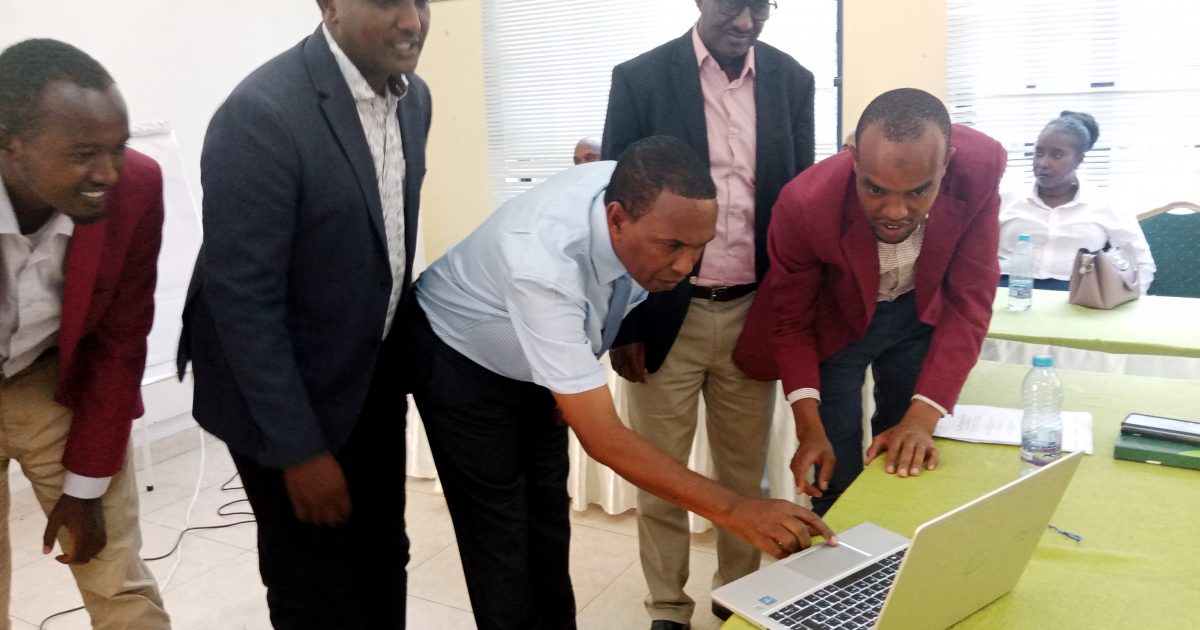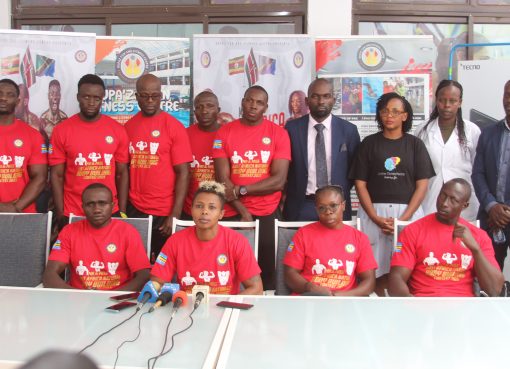Marsabit water and sewerage company (MARWASCO) has instituted measures to enable delivery of efficient water services to residents of Marsabit town and its environs in line with the sustainable development goals (SDGs) demand.
The new management at the company has installed a water utility master system with 9 service delivery zones aimed at ensuring that the precious commodity, which has eluded the residents for a long time is readily available and affordable.
MARWASCO managing director Stephen Katelo told stakeholders during the launch of the system at Paradise Inn that automation of water and sewerage services was not only aimed at enhancing efficiency, but to also make the company accountable.
Katelo added that the new move had enabled the company to check on poor record keeping, which was being done manually leading to loss of productive man-hours and ineffectiveness.
The company has been able to grow its number of metered water connections from 100 at take over time less than a year ago to 500 connections.
“These connections include institutions, community owned water kiosks and individuals that are now fully operational with reliable water supply,” he told the forum that was graced by the county secretary Hussein Tari and the CEC for water and environment Malicha Boru.
The managing director added that revenue collection was on an upward trend, now standing at sh800, 000 per month as loopholes that led to loss of both water and charges had been sealed.
The company which has also invested heavily in the capacity building of its personnel now does correct billing and demand for payment to consumers online through use of mobile phones.
Apart from the piped water to consumer premises and kiosks within their proximities, MARWASCO has also taken a step further as per the number six of the SDGs to purify water that residents draw from pans.
Mr Katelo said with the help from Opblue, the company intends to install water tanks that would be fitted with sawyer filtration systems to enable communities that depend on rain harvested water through pans and rooftops to purify the commodity and make it fit for consumption.
In his remarks, the county secretary said digitization of services was the way to go in order to serve members of the public with the expected efficiency.
Tari hailed the leadership of the company for their accountability approach in their management and asked them to step up efforts to avail wholesome water available to Marsabit residents which he said remains the most elusive commodity in the region.
This, he said would help in keeping water borne diseases at bay adding that a population battling with infections can never prosper as resources would always be diverted to fight diseases.
The county secretary also pointed out that the county government was allocating a lot of resources to its various departments to deliver services to the residents and that no excuse would be entertained for non-performance.
He cautioned county executive committee members and their accounting officers that they would be expected at the end of the financial year to account for every penny allocated to their dockets.
“MARWASCO has set an example of good management of public affairs and I will not expect anything different from the other government departments,” he stated, while asking residents to always take an active role in the implementation of development projects in their areas.
An official with OpBlue, William Muchini said a sample test of water drawn from Alobota water pan in Jirme location was highly contaminated with cholera and typhoid causing germs and that the organization would support plans towards its purification.
He said that the organization will team up the MARWASCO and the county government in availing sawyer filtration systems that would help in the provision of safe and clean water to hundreds of residents in Jirme.
Muchini also pointed out that climate change was impacting negatively into the local fragile environment adding that urgent measures were required in order to save water catchments and remaining tree cover.
Despite the successful steps so far made, the company still faces a number of challenges that inhibits it from wholly achieving its goal.
Katelo disclosed that the company urgently needs sh100 million to restore water distribution lines that were destroyed by road construction works during the tarmacking of the road network in the town.
The managing director believes that full restoration of water supply to the town, which was recently upgraded to a municipality would enable the company to rake in sh3 million in revenue per month.
Meanwhile, availability of water at the household level would also enable residents and institutions to grow some trees in their compounds, hence assisting in the fight against climate change.
By Sebastian Miriti





